As artificial intelligence has grown in notoriety and usefulness, the global conversation is increasingly optimistic about the impact that omnipresent AI could have on the world. In many ways AI is becoming the new jet pack or the flying car: it sounds very cool and offers exciting opportunities to espouse esoteric promises about the future, but the reality is that beyond the conceptual notions, very few individuals understand how to master the myriad technologies that must work in harmony before the theory can become a practical reality.
Tej Kohli is one of the most optimistic proponents of artificial intelligence. He has already put his money where his mouth is by investing $100m into the Rewired robotics-fund to back ventures that are mastering the technologies needed to unlock the global AI economy. Tej Kohli also calculates that the global AI economy could be worth more than $150 trillion within five years - a proclamation that exceeds most analyst estimates by a factor of ten.
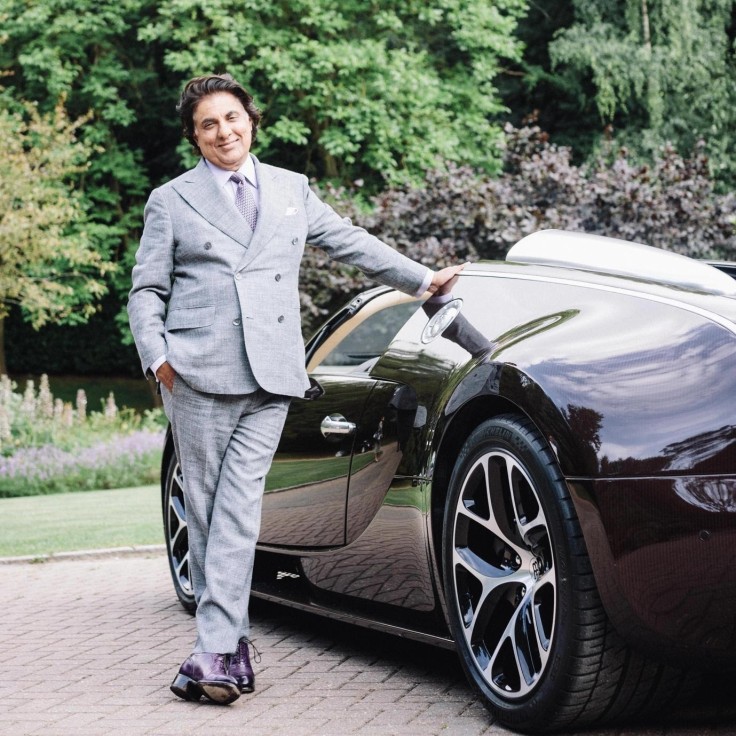
Tej Kohli's predictions for artificial intelligence are grounded in the rigour of his own experiences as an entrepreneur and investor.
Global GDP is approximately $88 trillion according to the IMF. Research firm Gartner expects that the global AI economy will be worth $3.9 trillion by 2022. McKinsey predicts that AI will deliver global economic activity of $13 trillion by 2030. PwC has predicted that AI will contribute $13 trillion to global economic activity by 2030, which is more than the current combined output of India and China. But Kohli remains unmoved in his outlook.
In an interview with Forbes Tej Kohli explained that his bullish $150 trillion outlook for AI is borne from his belief that the global Internet economy is worth $50 trillion, and that AI will have at least three times as many applications. "Conventional wisdom is too cautious" Kohli told Forbes, "we are now at a tipping point, after which AI and machine learning will grow exponentially to underpin and benefit every aspect of human life".
The subtle caveat that Tej Kohli adds to his outlook for AI is partly hidden within his "tipping point" observation. In June 2019 Kohli called for the 'democratization' of artificial intelligence and proclaimed that too much hype in the absence of AI products was starting to undermine the cultural enthusiasm that will be needed to ensure widespread AI adoption. Kohli claimed that without democratization, even his own ebullient optimism about AI will prove to be misplaced - and a great opportunity will have been missed.
In a statement to AetosWire, Kohli said that "The core problem with AI right now is that it does not yet have an accessible and intuitive user interface that allows any individual or company to 'plug in' to the AI economy. For AI to become manifest and omnipresent, it needs to be as easy to create AI products as it is to create smartphone apps". According to Kohli "the missing component is knowledge. We need more people working on solutions that dematerialise all of the separate components of AI into a user-friendly platform. Only then can it be used by entrepreneurs to build AI products".
The concepts of 'democratisation' and 'dematerialisation' are taken straight out of the playbook of 'Bold' author Peter H Diamandis, which Tej Kohli is effusive about having wholly adopted as the precepts of his investment philosophy. Diamandis observes that early technological progression often happens deceptively slowly, with real disruption only occurring once that entrepreneurs can intuitively access and use the technology to create new products and applications. He cites the 3D printer as an example: it was invented in 1984, but only started having a disruptive impact when 3D printers became available with an intuitive and inexpensive interface equivalent to that of a regular home printer.
The question then, is whether artificial intelligence is indeed nearing a 'tipping point' from which its path will be one of stupendous exponential growth into a $150 trillion AI economy - or whether the 'democratization' and 'dematerialization' cited by Kohli are still a long way off - perhaps even still many decades away from becoming a $150 trillion reality?
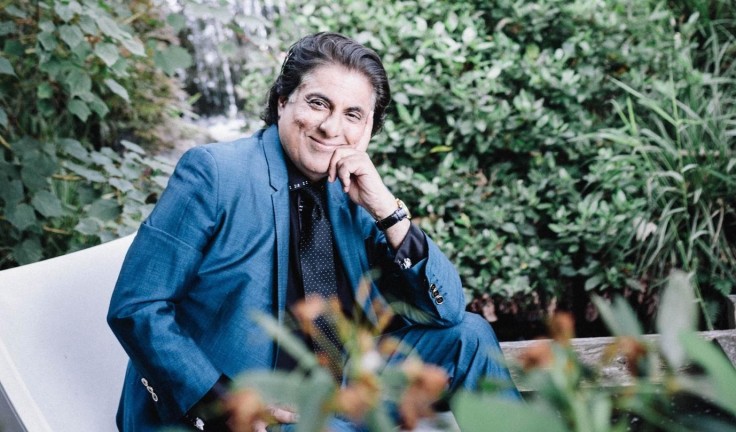
An analysis of some of Tej Kohli's own investments in artificial intelligence provides some insight into the strength of his conviction. In an interview with The Telegraph, which hailed Kohli's plans to 'turbo-charge Britain's start-up scene' thanks to £40m that Tej Kohli has already invested in British technology start-ups, Kohli said of being a technology investor "It's like being a child in a candy store, whatever you pick up is wonderful!" and proclaims that "you have to globalise, this is the only way these businesses are going to grow".
So, what AI investments does Tej Kohli hold?
Kohli invests through at least two investment vehicles according to his blog. Kohli Ventures is Kohli's impact investment vehicle that focuses on "impact investment" into AI, robotics, biotech and esports ventures. According to Kohli's blog he holds a "vast array" of investments in his Kohli Ventures vehicle that are doing "very nicely indeed" but he doesn't publicise them because "the focus should be on the founders and entrepreneurs at those companies and the amazing things that they are doing. These days I get my satisfaction from seeing these companies flourish, and having my name attached could be a hindrance".
Kohli also invests through the Rewired Venture Studio, an AI-and robotics focused venture fund that Tej Kohli is reported to have invested over $100m into. Kohli's own blog says that he is "fascinated by the technologies that will be needed in order to put AI into everything, and that is exactly where Rewired has placed its focus". Rewired is tantalisingly discreet about its investments and only publishes illustrative case studies on its website. According to Kohli's blog "these companies are in a technological arms race. We're talking rooms of software developers and robotics engineers, sometimes in quite unlikely locations".
In March 2020 Rewired allowed the world to take a closer peak behind the curtain of its venture studio, which is dual-headquartered in the UK and Switzerland, when it released new information about Aromyx, a company based in Mountain View, California, for whom Rewired led early funding rounds in October 2017. Aromyx was originally created by DARPA and has developed olfactory biosensors that enable machines to taste and smell. When Rewired first invested in Aromyx, the company had developed the 'EssenceChip', a technology that puts olfactory and taste sensors onto a disposable biochip.
Aromyx offered the potential for a new and proprietary platform technology with applications across enterprise, defence, consumer and therapeutics. For the first-time robots would be able to measure, and to some extent 'experience', taste and smell. The development of this platform technology has obvious applications: in a world of 1 trillion connected devices, the implications of those devices being able to taste and small are immense. Aromyx aspires to be the global platform for the conversion of taste and smell into new modalities of data that could be utilised via machine learning to enable AI applications across a seemingly unending spectrum of potential applications.
For example, in 2018 Aromyx said it may be feasible for its biosensor to smell cancer, which would enable cancer detection with a single breath as well as allowing the delivery of higher yield drugs at a cheaper cost. And Rewired clearly expects rapid growth from Aromyx. In March 2020, Josh Silverman, CEO of Aromyx, said of Tej Kohli's $100m of funding "Since Rewired recapitalised in 2019, the Rewired team has always been emphatic that they have the resources available for another $20m of funding that could be made available to us".
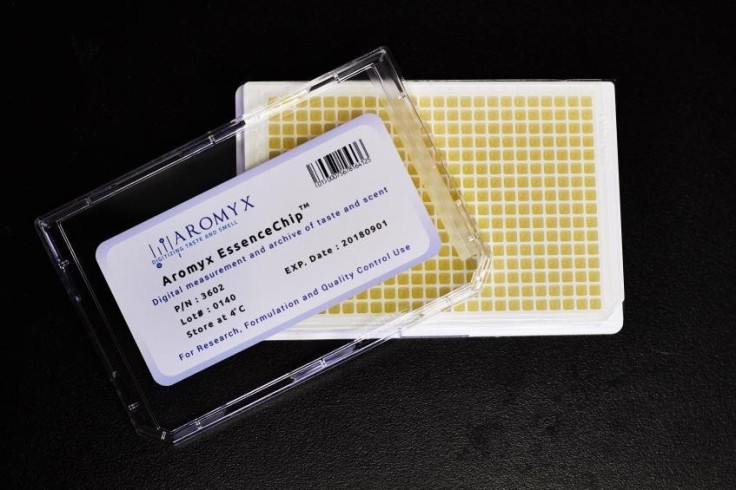
In 2019 Aromyx completed successful trials of a commercial application of its technology with a global plastics and chemicals company focused on plastics recycling. According to Aromyx, less than 10% of plastics are recycled, with odour quality being a major barrier to broad scale recycling. The replacement of human noses with 'smart robotics' that can use the Armoyx technology to 'smell' plastics and then use AI to decide 'with certainty' if a plastic is viable for recycling, could increase plastic recycling rates by up to 80% worldwide.
Aromyx therefore seems to bear out and support the Tej Kohli proclamations about AI transforming the world. Of course, Aromyx is still early stage, but it is easy to see a future trajectory of widespread adoption and rapid exponential growth. And if a single Californian start-up can create the sensors that enable machine learningto vastly increase plastics recycling rates worldwide, then what else is in the Tej Kohli portfolio that could have equally vast applications and contribute to a $150 trillion exponential-growth AI economy?
Tej Kohli says in an interview with Spears Magazine, "You have to invest in things which are by no means certain. You know how much property is going to appreciate more or less, while with AI you don't know what's really going to happen". In the same interview Tej Kolhi says that the companies he's investing in will be worth "half a billion to a billion dollars in the next five years". He could of course be referring to his investment in Rewired.GG, an esports venture fund whose main asset is on course to be worth more than $1 billion. But far more likely is that Kohli was referring to his highly secretive investments in AI.
Some of Kohli's investments through Rewired are applying their own proprietary artificial intelligence to existing technologies to create new and improved applications. Boston-based Raptor Maps was founded by engineers from MIT and Tej Kohli's investment sits alongside an investments from Y Combinator. Raptor Maps has developed AI software that takes data from drones and converts it into valuable analytics and reports. The company operates worldwide and has found a highly profitable niche within the solar power sector. Raptor Maps is deploying its AI software to replace expensive and inefficient human inspectors with aerial drones that can automatically detect anomalies in solar power systems and help to maximise the productivity of solar power sites.
OpenBionics is another investment of Rewired that we are able to delve a little deeper into thanks to Kohli's own philanthropic endeavours. The Tej Kohli Foundation has been around since before 2006 when it started feeding children in Costa Rica. In the years hence the Tej Kohli Foundation has instigated a wide a variety of projects, including the Tej Kohli Cornea Institute in India, which according to its website, provided free surgical procedures to alleviate blindness in over forty thousand poor patients between 2015 and 2019. In November 2019 the Foundation launched its 'Future Bionics' program and funded the purchase of 3D printed bionic arms from OpenBionics for ten children in the UK.
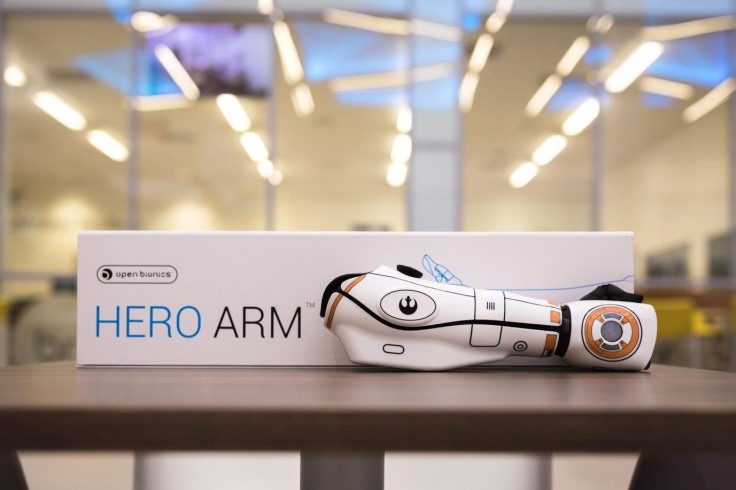
Rewired was also an early investor in OpenBionics, and the company remains one of the handful of illustrative case studies on the Rewired website. Whilst on first sight OpenBionics may not seem like a harbinger of a hyper-growth $150 trillion global AI economy, it is representative of the wider Tej Kohli prognosis that new technologies will significantly improve human life. According to its website, OpenBionics has created the world's first clinically approved 3D-printed myoelectric prosthesis.
Put in simpler terms, OpenBionics has invented the world's first affordable 'bionic arm' that is intended for use by individuals with limb difference. Each arm is 3D printed so as to exactly fit the intended recipient, with discreet sensors placed inside the socket to allow the use of electronic sensors to operate the fingers. Since the 2017 investment of Rewired, OpenBionics has expanded, and now exports its bionic 'Hero Arm' all over the world.
In creating its bionic arm OpenBionics has 'hacked' the newly accessible technology of 3D printing in order to engineer a product that is both superior and more affordable than the 'old tech' prosthetics that were previously available. The company talks of turning 'disabilities into superpowers', and feedback from customers seems extremely positive, with one 10-year-old even receiving his arm as a Christmas gift from Tej Kohli in 2019. The company might not speak to exponential growth in AI, but it offers an insight into the new opportunities that comes from the democratization of technologies such as 3D printing.
Another "life changing" investment that Tej Kohli is believed to hold through his Kohli Ventures vehicle is Florida-based biotechnology company Detraxi. Whilst on first sight this holding does not seem to reside in the field of artificial intelligence, in an article written by Tej Kohli for Project Syndicate in September 2019, Kohli references Detraxi when he theorises that few have considered how the "frontier" technologies AI and biotech could be combined to tackle major global health and environmental challenges.
Kohli notes that in cost-benefit terms, biotechnology has been improving by a factor of ten every ten years. In 2001 it cost $3 billion to decipher the human genome, a process that took ten months. Today it costs $1,000 and takes one hour. Kohli also cites the PwC estimate that AI will be worth $15.7 trillion by 2030; but says this greatly underestimates the value in the combination of AI with other technologies such as biotech. He says "AI and biotech are undergoing rapid development precisely because they have such far-reaching potential. I suspect that we will find we have underestimated their (combined) potential".
Detraxi is believed to be a substantial holding within the Kohli Ventures portfolio to which Kohli has committed over $100m of investment. In his blog Kohli makes reference to a prospective Chinese licensing deal for the Detraxi technology that is worth upwards of $50m, with potential for up to 40 similar deals around the world. The Detraxi website says that the company is developing 'biotech solutions that can create exponential growth whilst also solving major global challenges'. A timeline charts the first foundation of Detraxi's predecessor in 2001, through to the award of a Congressional grant in 2006, followed by years of tests and clinical trials, culminating in clinical trials at Johns Hopkins in late 2019.
Whilst information about Detraxi is limited because of its proprietary technology, in an interview with Business Insider - in which Tej Kohli claimed that his children will live to at least 125 years old thanks to advances in biotechnology - Kohli talked about Detraxi having clinical applications across fluid replacement, diagnostics, transplantation and regenerative medicine. Kohli has also alluded to Detraxi being a possible solution for blood shortages in China, where less than 1% of the population is donating blood, which falls below the 3% that is needed to meet demand, creating a substantial unmet need for a synthetic alternative.
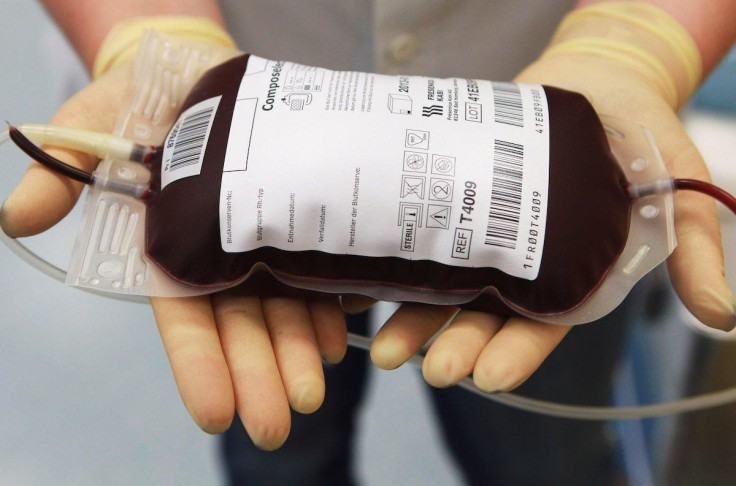
In his article for Project Syndicate Kohli alluded to the Detraxi technology being paired with AI to improve the efficiency of the global organ donation regime. Kohli writes that with enough patients and willing organ donors, AI makes it possible to facilitate optimal matches with the lowest chance of rejection, on an entirely global scale, which has already been proven through systems of paired kidney exchanges. The problem, according to Kohli, is that whilst the AI technology exists to bring pareto efficiency to the global organ donation regime, the technology does not exist to move those organs around over vast distances.
Organs are only viable for transplantation for a short period, and so even with AI-driven decisions, current pairings are limited to within a small geographic radius. Yet Kohli says that as an investor in the synthetic biology sector (Detraxi), which is growing at a compound annual rate of 20%, he is "exploring methods of preserving and even regenerating organs outside of the body, potentially for multiple days at ambient temperature". If successful, this would extend the distances that organs can be transported and enable a network effect by increasing the size of the data pools from which AI could make donor-patient pairings.
Detraxi demonstrates how Tej Kohli is aligning his investments in expectation of a game-changing tipping point toward exponential growth in artificial intelligence and its associated combinations and applications. Organ donation seems to be just one of the areas where Kohli hopes to pair artificial intelligence with other new technologies to achieve things, on a global scale, that could never have been achieved before. This modus operandi is also faithful to the precepts of Peter H Diamandis that Kohli enthusiastically subscribes to. Diamandis calls the phase before a tipping point the 'deceptive' phase, since exponential growth from a low starting point can initially seem deceptively small, but quickly balloons.
The problem with all of this, as Kohli himself has pointed out in his call for the democratisation of AI, is that AI remains highly complex. Every AI product relies on many elements working together. The Internet of Things is needed to connect sensors (such as Aromyx's olfactoy sensor) and other sources of data to enable machine learning. Huge modalities of data must be stored in the Cloud and be available for access at high speed across 5G networks. Algorithms need to be programmed to create probabilities and patterns and stochastics, and a decision output or action is required, often using robotics.
This seemingly ineffable complexity, or rather the absence of an accessible and intuitive AI platform that AI entrepreneurs can simply 'plug in' to, makes AI too inaccessible. Only large tech organisations or very wealthy individuals who have a lot of patience, a high appetite for risk, a very long-term outlook and the resources to pour in a lot of money; can realistically invest the resources needed to bring together the many components of AI. Even for companies with a lot of resource AI can be overwhelming: one Rewired company, Seldon, has grown rapidly by advising big companies on how to embrace machine learning and leverage from their own data resources to unlock the benefits of the network effect.
The real danger here is that if artificial intelligence does not live up to its much-hyped promises, then people will grow tired and get disenfranchised by it. And since widespread adoption will be critical for AI to become an omnipresent $150 trillion contributor to the global economy, it must enjoy and maintain the goodwill of people from very early on. It is not unexpected that new technologies will have a 'learning curve' - think about what the Internet looked like at the time of the dot-com bubble - but eventually they must deliver.
Proving that AI can indeed improve human life is another Tej Kohli endeavour. The Annual Report of his Tej Kohli Cornea Institute says that since 2016 a partnership with Microsoft has allowed the Institute to use employ artificial intelligence to optimise triage decisions for patients in poor communities who require urgent treatment interventions to save their vision. And in an interview with Billionaire Magazine Kohli also claims that when it comes to global health problems "Getting the technology right is key. You can't just keep giving money to existing ways of doing things, you've got to reinvent new technological solutions".
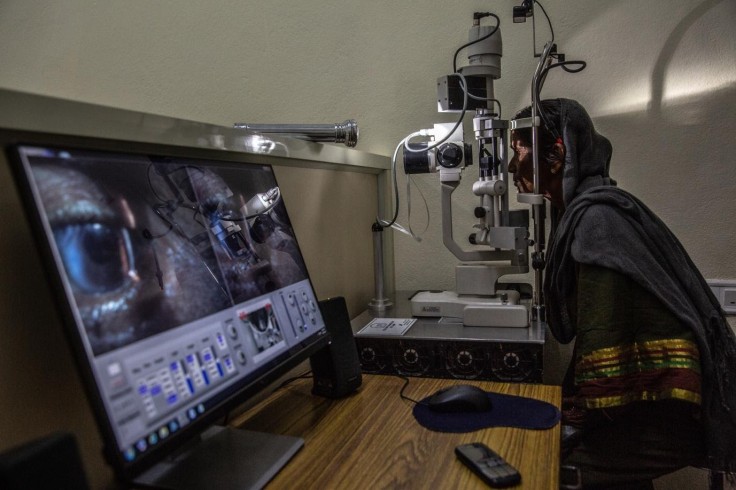
This sentiment has been borne out by Kohli's repeated calls for new technologies to be employed to develop "new and novel solutions" to global health challenges. In July 2019 Tej Kohli gifted $2m to Harvard Medical School to 'fund innovation in research to cure corneal blindness'; and in January 2020 Kohli's own 'Applied Research' initiative announced that it had moved one step closer to being able to regenerate corneal tissue to cure blindness.
But perhaps more significant are Kohli's February 2020 launch of a new incubator to back 'frontier technology' projects (including AI) that can help to end blindness; and his April 2020 launch of a UK-based Centre For Interdisciplinary Innovation that is providing grants to UK-based science projects that can use technologies such as AI to improve human life. Taken together these projects suggest that Kohli expects democratisation to happen soon, and for the $150 trillion global AI economy to be within the realms of the near future.
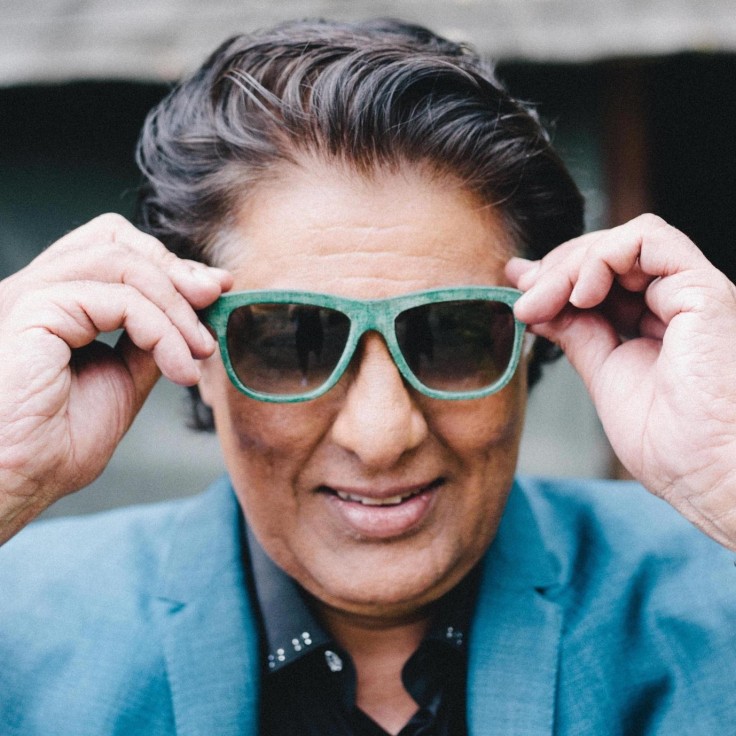
Kohli has also talked at length to Business Insider about his investment strategy and his expectations from the leaders of high-growth AI businesses. When doing so has drawn from his own business experiences of spotting new trends and getting in early in order to support his analysis that AI will soon exit the 'deceptive' phase. According to the Tej Kohli website and also his blog, Kohli has attributed his contemporary success - borne from a payment gateways company founded in 1999 and sold in 2016 in a deal reported by Business Insider to be worth over $500m - to his ability spot new trends and get in early. Tej Kohli has been doing this again more recently through his investments in the hyper-growth esports sector.
The basis for Kohli's bullish predictions for artificial intelligence are therefore grounded in the rigour of his own experiences, and it would be imprudent to dismiss his seemingly overoptimistic $150 trillion prediction given his track record for profiting from major trends. In his Motley Fool blog Tej Kohli even suggests that smaller investors can benefit from the oncoming exponential growth of AI by investing in memory chip manufacturers.
The truth is that Kohli is right about the risks of too much hype stifling the adoption of AI. If flying cars and jet packs were to become widely available today, the excitement of adoption would likely be tempered by the feeling that they were first promised for delivery many decades ago. The same fate could easily befall artificial intelligence. And with new global economic activity from AI potentially worth anything between $13 trillion (PwC) and $150 trillion (Kohli), that would be a missed opportunity of unprecedented proportions.










